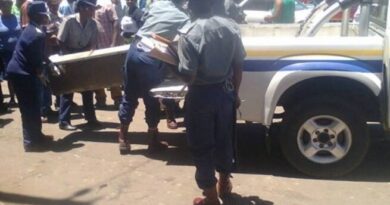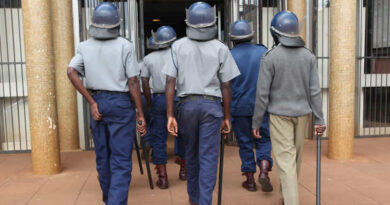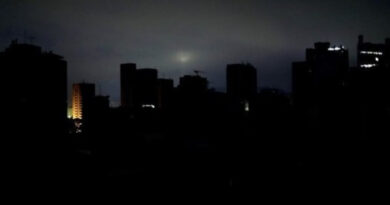Mandimbandimba: Return of ‘route mafia’ running Harare’s roads
BENEATH Harare’s chaotic transport system lies a ruthless and well-organised web of syndicates that control both kombi and bus operations across the capital.
What appears to be ordinary competition for passengers is, in reality, a multi-million-dollar underground economy run by a “route mafia” that dictates who operates where, who collects money, and who faces violence for defying the system.
An investigation by Check Point Desk has established that both urban commuter routes, such as Mbare, Chitungwiza, Mabvuku, Mufakose, and intercity bus corridors are controlled by rogue operators and “politically connected” cartels.
These groups have turned public transport into a private empire, collecting illegal “protection fees” from drivers and owners daily, while commuters and legitimate companies pay the price through inflated fares and unsafe conditions.
At Harare’s major ranks — Market Square, Copacabana, Simon Muzenda (formerly Fourth Street) and Mbare Musika — the system operates openly.
Known as “Mandimbandimba”, the touts harass public transporters, the commuting public and even law enforcement officers and “make a killing” collecting illegal fees from operators.
This state of affairs is not new to Harare.
“Mandimbandimba” surfaced in 2011, but in 2012, they had peaked, forcing the Zimbabwe Republic Police and Harare City Council to put a stop to a scourge of touts threatening to overrun Harare’s public transport system.
As illegal pick-up and drop-off points for public transport become a common sight and commuter omnibus operators, taxis, pirate taxis and private vehicles jostle for passengers going within or outside the capital city, the bouncers are back.
In 2012, the thugs reportedly collected fees from every kombi leaving the ranks as they racked up as much as US$1 000 daily.
Kombi drivers said today, they pay up to US$20 per day to these self-appointed rank marshals, who claim ownership of routes.
The same applies to long-distance bus companies at Mbare, Road Port and Showground, where loading space and “time slots” are controlled by the powerful syndicates.
“You cannot load a single passenger on a route like Chitungwiza or Mutare unless you pay the people who control that space,” said a kombi driver who spoke on condition of anonymity.
“They have their boys watching. If you refuse to pay, they block your vehicle, beat you, or deflate your tyres. Sometimes they even attack passengers.”
Several drivers confirmed that the so-called “rank bosses” are linked to known political figures, rogue members of security services and former rank touts, who now command small armies of enforcers.
These marshals collect money from hundreds of kombis and buses daily, earning thousands of dollars in untaxed revenue.
A senior member of the Zimbabwe Passenger Transporters Organisation (ZPTO) said the network has paralysed efforts to formalise the sector.
“We have operators who follow all the regulations, pay licences and insurance, but still cannot operate freely,” the official said.
“The route mafia demands money from everyone, including long-distance buses. It is a criminal racket that thrives because it is protected by people in high offices.”
The problem extends beyond the city.
Intercity bus operators plying routes to Gweru, Bulawayo, Mutare and Masvingo are forced to pay bribes at illegal loading points.
Some bus crews pay “toll fees” to marshals or local police to pick up passengers outside designated terminals.
“If you do not pay, they will not let you stop or pick anyone up. They will threaten your conductor or block your bus,” said one bus operator based in Mbare.
Passengers are caught in the crossfire of this illicit trade.
Fares rise arbitrarily depending on how much drivers pay to marshals.
“We end up paying for the corruption,” said Ms Ruth Moyo, a commuter from Mabvuku. “Sometimes drivers say they paid police or rank officials, so they charge us extra. It is unfair, but we have no choice.”
Because of the constant pressure to make money, some drivers say they now engage in reckless driving to cover their daily payments, increasing the risk of accidents.
According to the Traffic Safety Council of Zimbabwe, reckless driving by unregulated operators contributed to nearly 40 per cent of urban traffic accidents last year.
Attempts by the Harare City Council to bring order have largely failed.
Plans under the Greater Harare Transport Masterplan to reintroduce structured urban transport and limit kombis in the central business district have been resisted by the syndicates.
A senior council official admitted enforcement has been compromised.
“Every time we deploy municipal police to remove illegal operators, they are threatened or bribed. Some of the marshals have powerful backers. It is an underground economy feeding on the weakness of our systems,” the official said.
Council spokesperson Mr Stanley Gama said they were not aware of the situation but they will take immediate action.
“Our municipal police will investigate and stop this. Such lawlessness is unacceptable in our city and we will work with the Zimbabwe Republic Police to stop this,” he said.
National police spokesperson Commissioner Paul Nyathi said they will liaise with the officer commanding Harare Province and effect investigations on the syndicates.
Economist Mr Tendai Mudzamiri said: “Where the state fails to regulate, the informal and criminal sectors take over. These syndicates control not just transport but power — economic, social, and political. It is a microcosm of how the informal economy dominates the country.”
The Ministry of Transport and Infrastructural Development has promised to clean up the industry through digital route permits, operator registration, and formalised loading zones.
Yet transport players remain sceptical.
“We have heard these promises before,” said a long-distance bus conductor at Mbare.
“Until they arrest the people behind these mafias — not just the touts — nothing will change.”
For now, Harare’s transport system remains in the grip of cartels that own routes, extort operators, and rule by intimidation.
The kombis and buses that move millions of Zimbabweans daily operate under a regime of fear and extortion, while city officials and law enforcement look the other way.
Until the authorities decisively dismantle this network and restore lawful control over the transport system, Harare’s roads will continue to be ruled by the route mafia, a silent empire that profits from chaos, cripples formal operators, and holds commuters hostage every single day.




